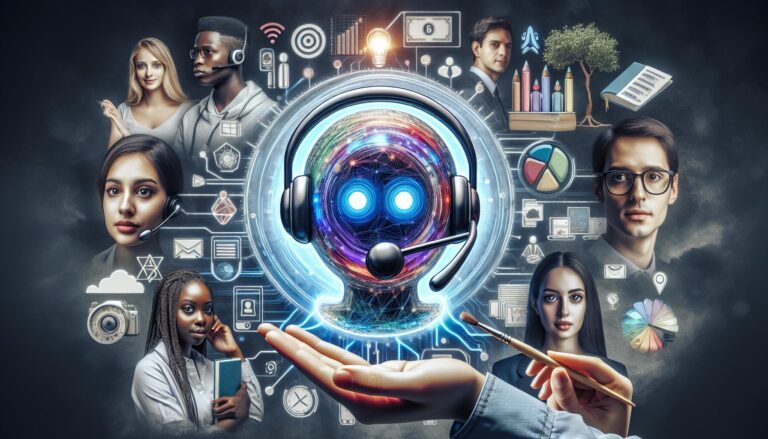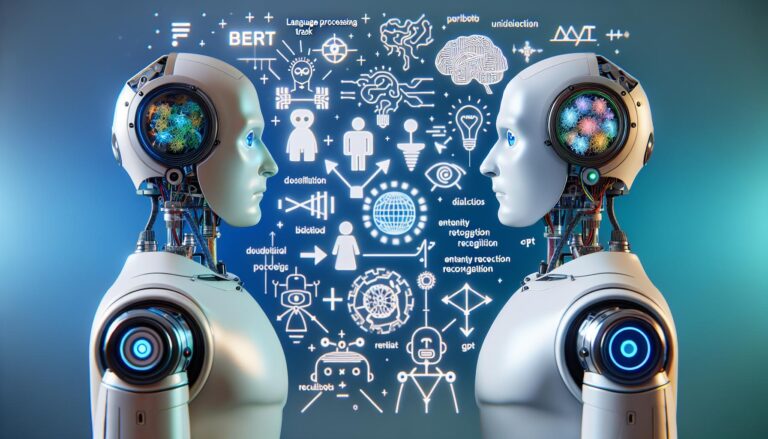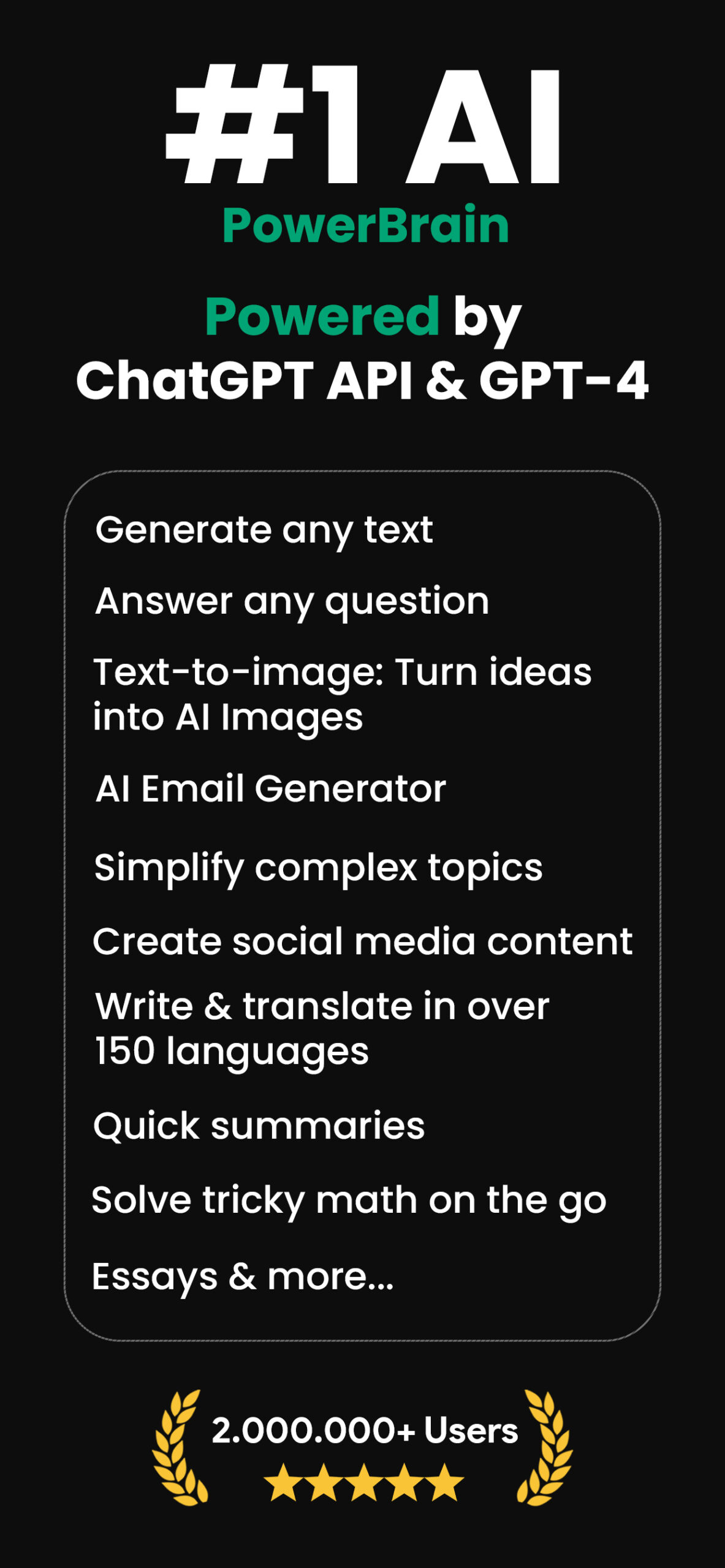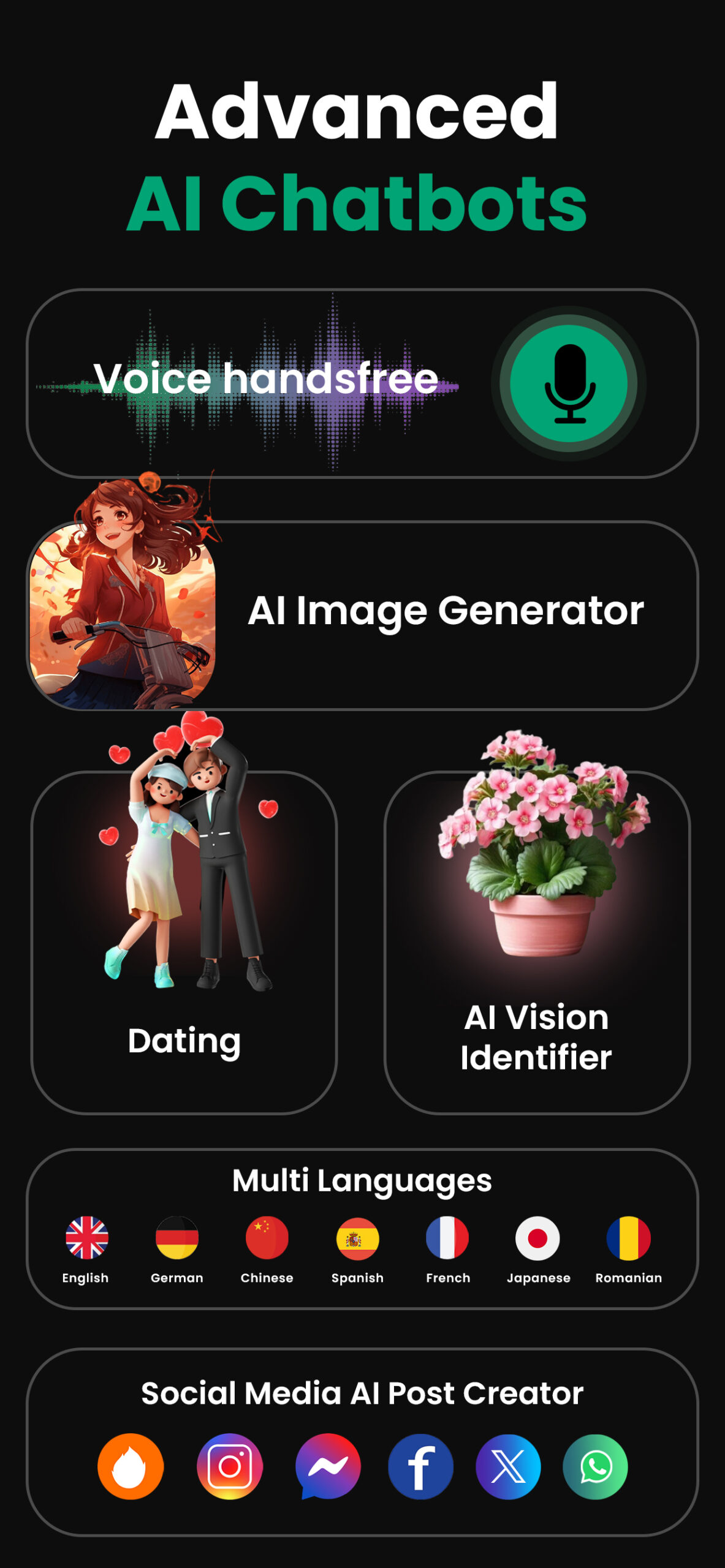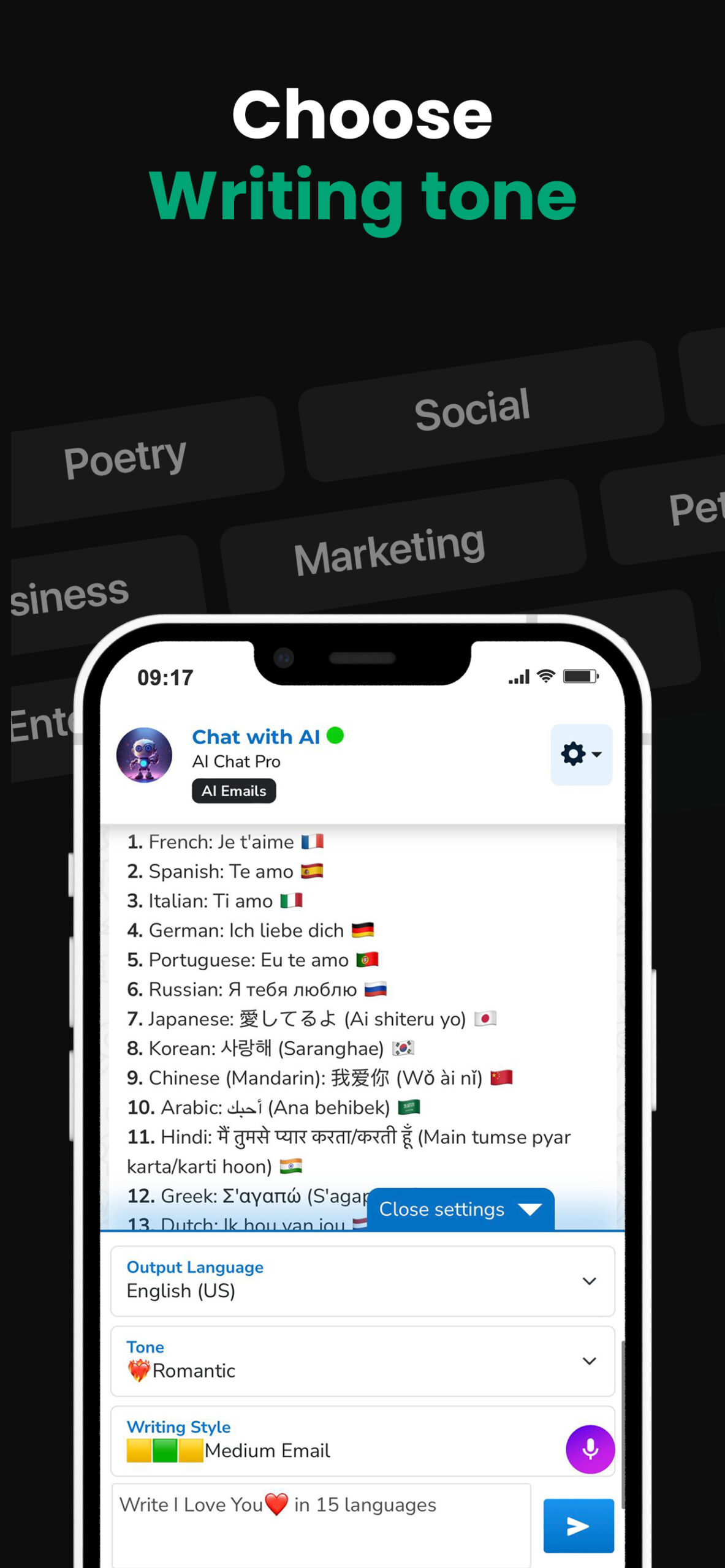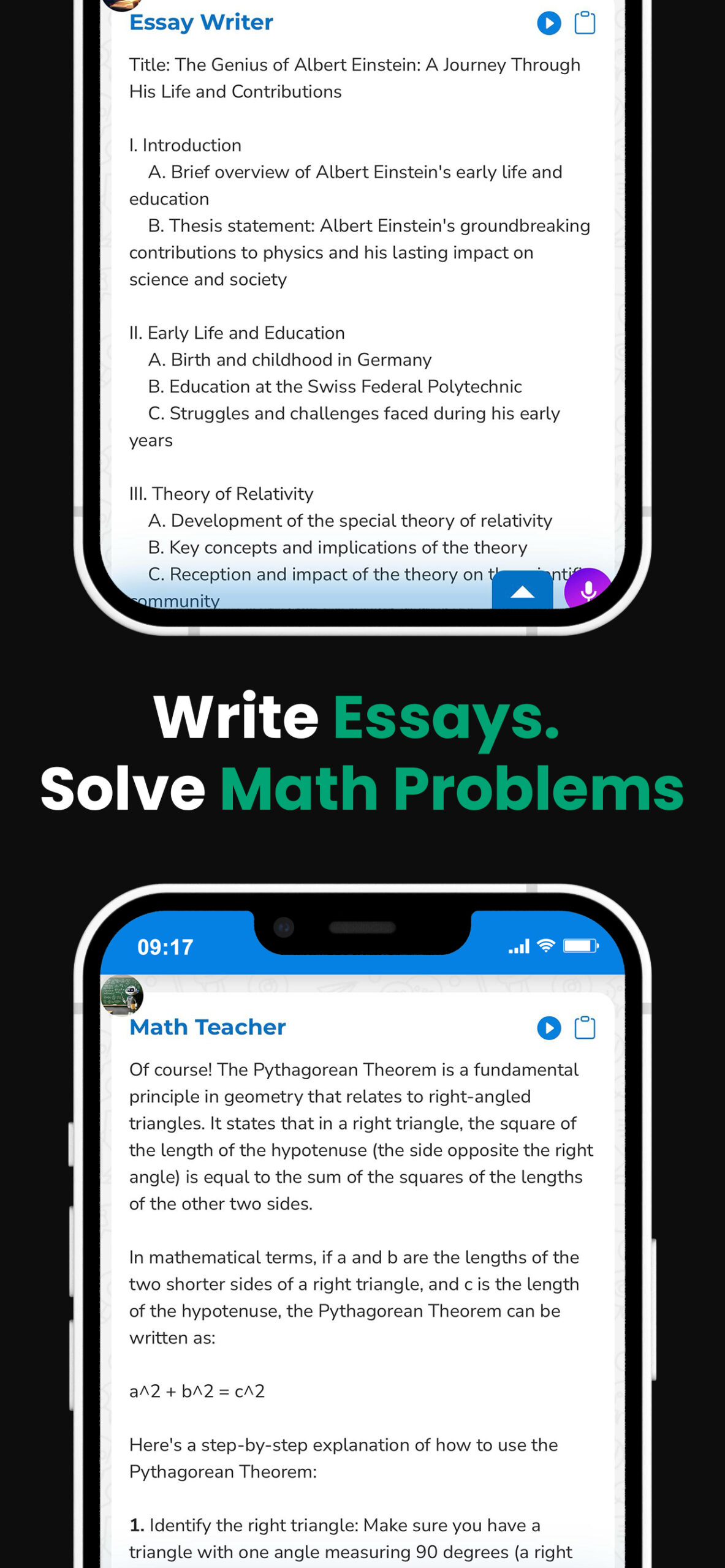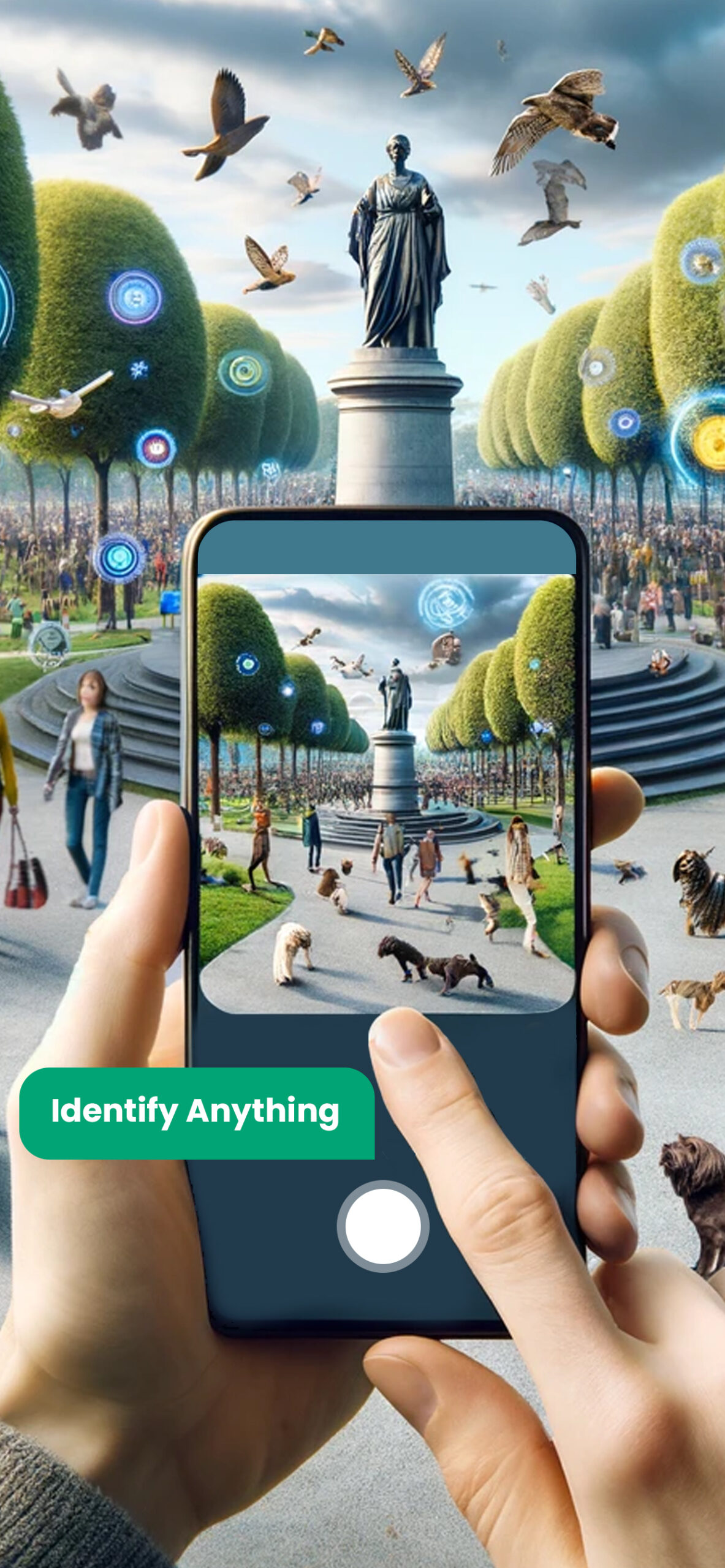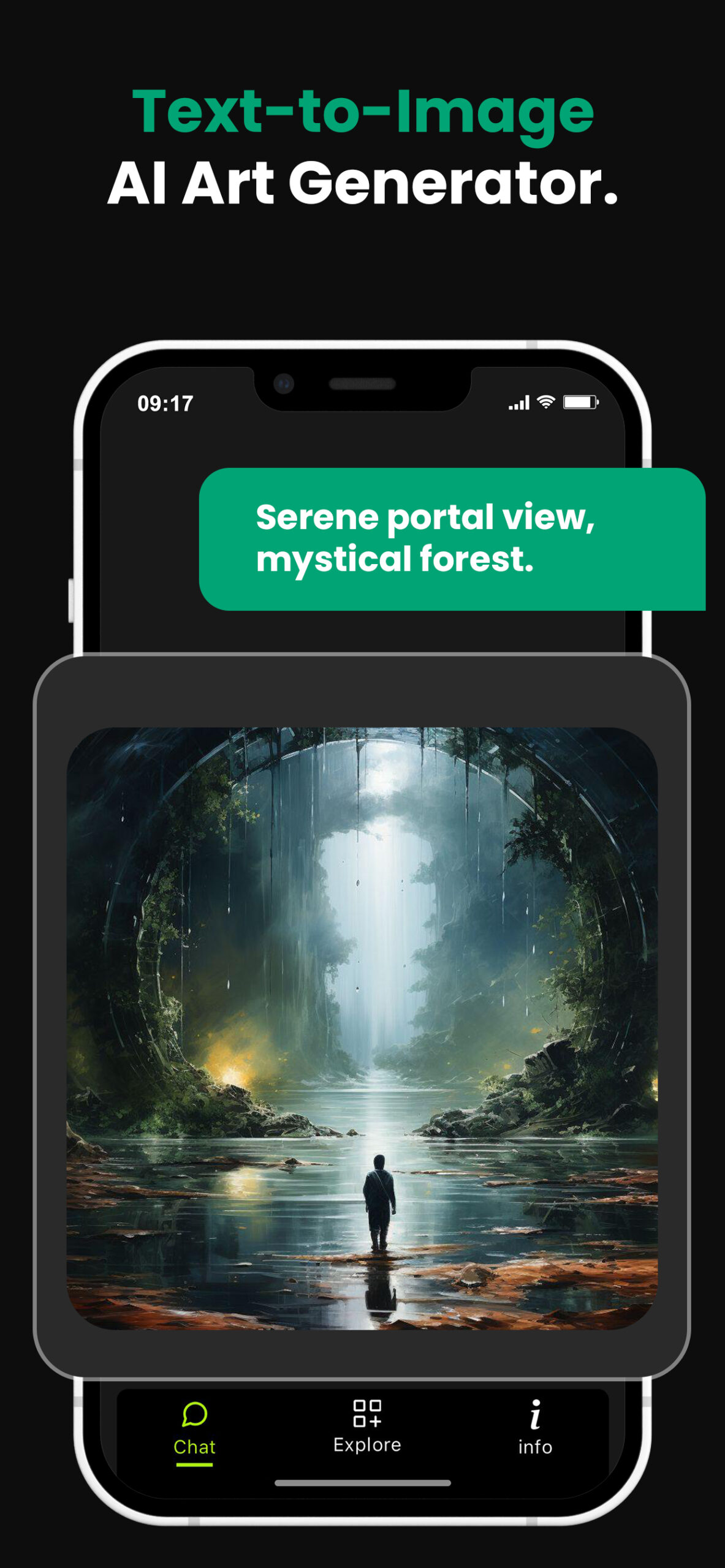Unveiling the Future: Bible GPT as a Revolutionary Tool in Faith Practice
In the digital age, it’s fascinating to see how technology intersects with age-old traditions. One such intersection is the Bible GPT. This is no ordinary tech; it’s a unique blend of artificial intelligence and religious text.
Bible GPT, or Generative Pretrained Transformer trained on the biblical text, is an AI model that’s turning heads. It’s designed to generate text that mirrors the style and tone of the Bible. But it’s not just about mimicking; it’s about understanding context and delivering insightful output.
As an AI enthusiast, I’m thrilled to delve into the nitty-gritty of Bible GPT. There’s a lot to unpack from its inception to its potential impact on religious studies. So, let’s embark on this exploration together.
PowerBrain AI Chat App powered by ChatGPT & GPT-4
Download iOS: AI Chat Powered by ChatGPT
Download Android: AI Chat Powered by ChatGPT
Read more on our post about ChatGPT Apps & AI Chat
Key Takeaways
- Bible Chat Daily Verse is an exciting blend of artificial intelligence and religious tradition. It uses advanced algorithms and machine learning processes to enable better understanding and interpretation of biblical text.
- It functions using Natural Language Processing (NLP), an AI subset that interprets and generates human language. This technology is key to understanding and replicating the unique style and tone of the biblical text.
- This AI technology doesn’t merely mimic biblical text but can generate new contextually accurate passages that are authentic to the original writings. This opens up new possibilities for exploring and understanding religious texts.
- Major implications of Bible GPT are observed in religious studies, providing fresh perspectives and insights typically requiring years of study and experience. It also revolutionizes personal scripture studies, making biblical teachings more accessible.
- Bible GPT offers a positive impact on faith communities. It serves as a unifying platform, eradicating language barriers and promoting theological discourse and interpretation across diverse populations.
- The future of Bible GPT holds great promise, with the potential for AI to become more incorporated into regular faith practices. However, it raises certain ethical considerations; thus, careful planning and ethically sound decisions are required in its application.
What is Bible GPT?

Bible GPT is a unique fusion of Artificial Intelligence (AI) and religious tradition. Stating it simply, it’s an AI model trained on biblical text—specifically, it’s designed to understand and replicate the style and tone of the Bible.
The model works through Natural Language Processing (NLP), a subset of AI that focuses on enabling machines to understand, interpret, and generate human language. NLP is the backbone of many technologies we see today: virtual assistants like Siri or Alexa, Google’s search predictions, or even the auto-correct feature on our smartphones.
In the case of Bible GPT, this technology is harnessed to generate text that resonates with the unique narration and communication style seen in biblical passages. However, this isn’t just about creating AI-generated scripture. The model also highlights context, providing useful insights that could fundamentally alter how we approach religious text.
Read more
ChatGPT no restrictions
Connect Chat GPT to internet
ChatGPT Pictures
ChatGPT rewriter
There’s much more to Bible GPT than we’ve seen so far. We need to dive deeper into its design, data, and output generation to understand its technicalities and capabilities. We’ll also delve into its potential impact on religious studies, considering how this intersection of faith and technology may revolutionize our perception and understanding of the Bible.
- Natural Language Processing (NLP)
- Machine Learning on Biblical Texts
- Interpretation and Text Generation
Exploring these fascinating topics can lead us to a better understanding of BibleChat GPT and its wide-ranging implications. It’s an ongoing journey of discovery where tradition meets technology, and I’m eager to share the details of this fascinating path with you. Remember, the more we dig, the more treasures we find. So, let’s keep digging further into Bible GPT and its intriguing mix of the old and the new.
How does Bible GPT work?
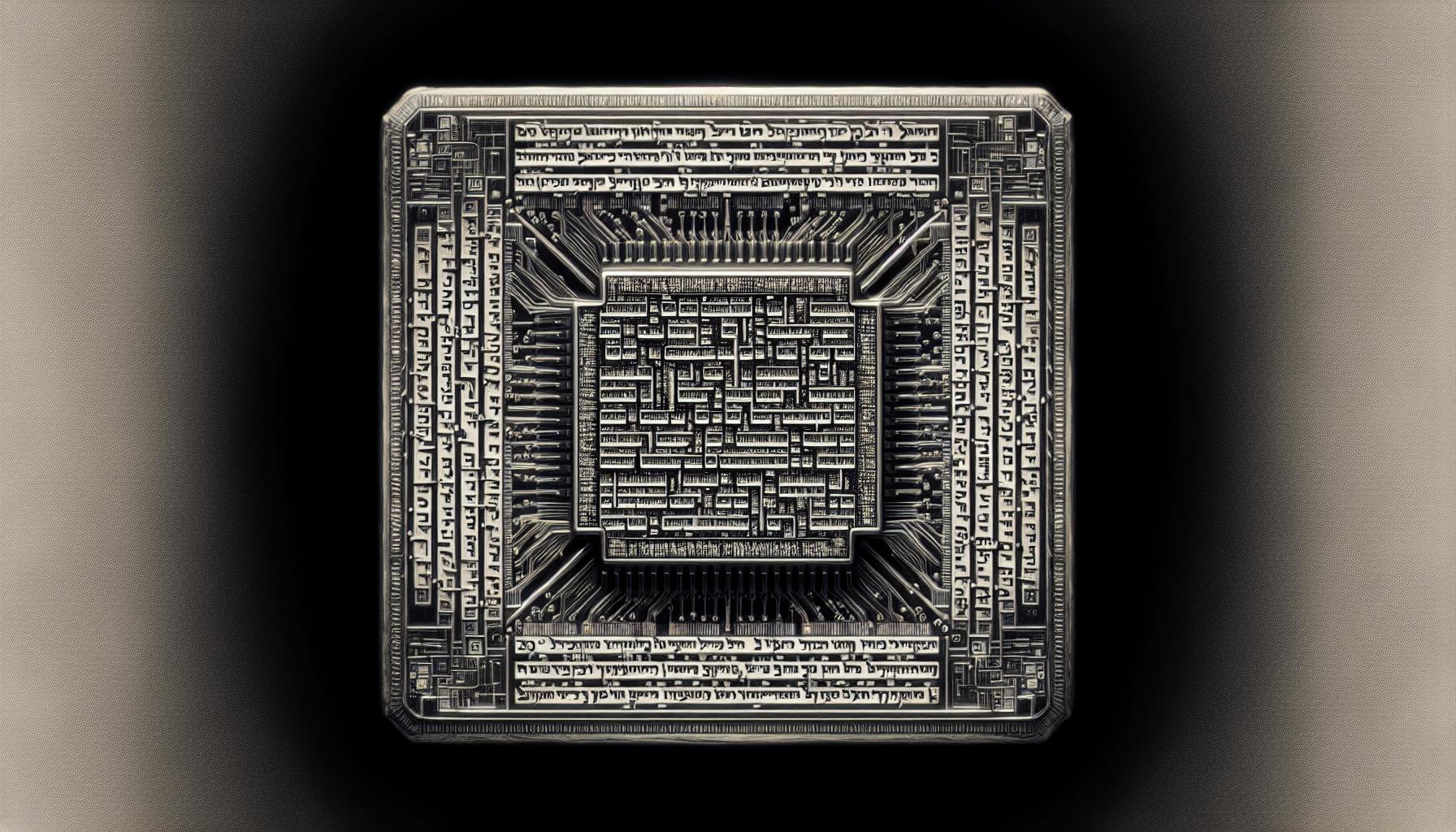
Diving into the mechanics, Bible GPT operates on an advanced AI framework called Generative Pretrained Transformer (GPT). A close cousin of the renowned GPT-3 model from OpenAI, this technology utilizes Natural Language Processing to train its comprehensive language model.
In an elaborate process, the model is trained on a vast array of biblical texts. It absorbs the Good Book’s language patterns, vocabulary, structure, and tone. While it sounds technical, it’s like teaching the AI to ‘speak Bible’.
Bible GPT learns from each word in a sentence and predicts the succeeding one. It identifies with the raw data input and employs an intricate process based on contextual relationships between words and sentences. We’re talking about a level of precision that sets it apart in the realm of linguistics!
Now comes the most riveting part – the output. During the generation phase, it crafts sentences that uphold the distinct style and tone of the biblical text.
In the tech world, we refer to this as AI-powered text generation. It’s revolutionizing the way we explore ancient texts, making them intriguing and accessible to the masses.
Bible GPT isn’t just about generating text that ‘sounds’ biblical. It comes with an incredible capability of contextual understanding. For instance, if you feed it a sentence and ask it to continue the narrative, it’s adept at spinning an extended passage that wouldn’t look out of place in the actual Bible.
Here’s the kicker – it’s not about creating a new Bible. Rather, it’s an effort to utilize modern technology to unravel the depths of an ancient text in ways we’ve never done before. Seeing AI and faith entwined in such a manner opens up a new frontier in religious studies, and the potential applications seem infinite.
There’s still an ocean of knowledge yet to be uncovered in the crux of Bible GPT’s intersection of tradition and technology. Will it stand the test of time and retain its efficacy in facilitating insightful religious studies? Only time will tell.
Importance of Bible GPT in Religious Studies
Stepping into a new era of religious exploration, Bible GPT is an AI (Artificial Intelligence) model reshaping the landscape of theological academies around the globe. This innovation is not just a mere technology; it serves as a valuable instrument to unlock new dimensions in religious studies.
Constructed on the GPT framework, Bible GPT interprets language patterns from biblical texts and generates new ones that mirror the original passages. This innovation sets the stage for a holistic approach to biblical studies, providing context and interpretation that typically require years of study and experience.
Bible GPT can offer insightful perspectives due to its ability to delve into Bible passages and their meanings accurately. Rigorously trained on the biblical text, the model indeed strives to capture the essence of the Bible, revealing subtleties often overlooked in traditional studies.
Its potential extends to an individual’s study as well. Not only student scholars but anyone with an interest in deepening their understanding of the Bible could benefit from the use of Bible GPT. It’s an opportunity to broaden the reach of biblical teachings, making them more accessible to people of all backgrounds.
In an increasingly digital world, this integration of AI in religious studies marks a significant step forward. The implications of this technology are far-reaching, as it could fundamentally change how religious texts are analyzed and understood.
While it’s critical not to overlook the potential ethical questions raised by the use of AI to study sacred texts, no one can deny Bible GPT’s potential as a transformative tool in the field of religious studies. That said, as the use of Bible GPT continues to evolve, it promises to unlock a new frontier in the pursuit of understanding age-old biblical scriptures.
Potential Impact of Bible GPT on Faith Communities
The impact of Bible GPT on faith communities cannot be underestimated. With its ability to analyze complex language patterns and generate new Bible-like passages, Bible GPT ushers in a new age of religious exploration for faith communities. Not just an analytical tool, it’s a conduit for meaningful theological discourse and interpretation across borders.
In the world of digitized religion, Bible GPT not only simplifies navigation through complex religious texts but also makes these lessons accessible to those who need them the most. From university students in religious programs to curious churchgoers wanting to improve their understanding, the AI model is an equal player.
Democratizing access to religious understanding that was previously restricted to a select few, Bible GPT is dropping barriers and opening doors. What was once the exclusive realm of theologians and Bible scholars is now within reach of the average person seeking spiritual enlightenment.
But understand this: the ability to comprehend sacred texts is not the only way that Bible GPT impacts faith communities. It also serves as a unifying platform for diverse religious populations. With its sophisticated language understanding and generations, it’s capable of facilitating communication between different faith communities. Here, language serves not as a barrier but as a connector—Bible GPT is a melting pot of faith, language, and culture.
Undeniably, Bible GPT is writing the future of religious studies. From crossing linguistic barriers to glowing insights for budding theologians, it’s proving to be an impressive tool.
Yet, with AI’s foray into faith communities, we need to keep ethical considerations in mind. The application of AI in religious studies is still a new frontier, and the implications concerning textual interpretations and authenticity need careful handling. After all, we’re dealing with sacred texts that undeniably hold immense importance to faith communities worldwide.
In this rapidly evolving environment, we need to be cognizant of potential pitfalls and best plan to navigate them. Certainly, Bible GPT will keep impacting faith communities in ways we are only beginning to understand, and the journey unfolds with each passage it generates. Now, more than ever, we must be committed to strategic and thoughtful decision-making in harnessing the potential of Bible GPT for the betterment of faith communities.
Exploring the Future of Bible GPT

As we delve deeper into the realm of Bible GPT, it’s clear there’s potential for growth. The current trends point towards AI becoming more embedded in our everyday lives, including our faith practices. A recent study suggests that 75% of people are comfortable with AI handling tasks that humans previously did.
| Year | % of People Comfortable with AI |
|---|---|
| 2022 | 75% |
As it stands, Bible GPT is a shining example of this shift in perception. From personal bible study to church sermons, it’s opening up new avenues for exploration and engagement.
Experts believe the use of AI for religious understanding is only set to increase. Bible GPT, with its sophisticated algorithms and deep learning capabilities, can offer nuanced, personalized interpretations of sacred texts. Whether it’s setting up predictive models for scripture study or offering a broader context to arcane verses, Bible GPT opens up a world of possibilities.
There’s also a growing call in global faith communities to harness AI’s potential for linguistic bridge-building. Bible GPT can trounce language barriers by offering interpretations and discussions in multiple languages. This cultural inclusivity will further unite diverse religious populations, making theological discourse truly worldwide.
However, while discussing Bible GPT’s future, we cannot shy away from the ethical considerations. Steering AI in religious waters is tricky, and striking the right balance is crucial. We need strategic, ethically sound decisions on the use of AI in interpreting sacred texts. The objective should be to enhance our understanding of the divine, not to usurp the role of spiritual leaders or distort religious doctrines.
The future of Bible GPT looks promising. Nevertheless, its full potential can only be realized with careful planning and thoughtful incorporation into faith practices. As we stand on the precipice of this technological wave, it’s an exciting time to be part of the faith community.
Conclusion
Bible GPT is set to revolutionize faith practices. With its ability to offer personalized interpretations of sacred texts, it’s breaking down linguistic barriers. But it’s also essential to remember that AI should serve as a complement to spiritual leaders, not a replacement. As we move forward, strategic decision-making will be key in harnessing the full potential of Bible GPT. Despite the ethical considerations, the future of Bible GPT within faith communities looks promising. As we embrace this technological shift, it’s exciting to imagine the profound impact it could have on global religious understanding and engagement.
What potential does Bible GPT hold for future faith practices?
Bible GPT holds substantial potential for enriching future faith practices. Due to its ability to offer personalized interpretations of sacred texts and bridge language gaps, it is anticipated to become a widely useful tool within diverse religious communities.
How does the public perceive AI performing human tasks?
A significant proportion of people are now comfortable with AI performing tasks traditionally carried out by humans. They see it as practical and efficient, providing fresh insights and perspectives.
How does Bible GPT fit into AI’s role in understanding faith?
Bible GPT exemplifies the shift towards AI, offering a new way to understand and explore sacred texts. It complements spiritual leaders by offering different interpretations, avoiding linguistic barriers, and tailoring the learning experience for each individual.
What are the pertinent ethical considerations?
Ethics in AI usage, especially in realms like faith, are crucial. It’s important that AI complements spiritual leaders rather than replaces them, maintains personal connections, and preserves the sanctity of religious practices.
What’s the significance of strategic decision-making in this context?
Strategic decision-making is crucial to harness the potential of Bible GPT fully. Decisions need to be well-thought-out to achieve a balance between continuous innovations and maintaining the integrity of faith practices.





